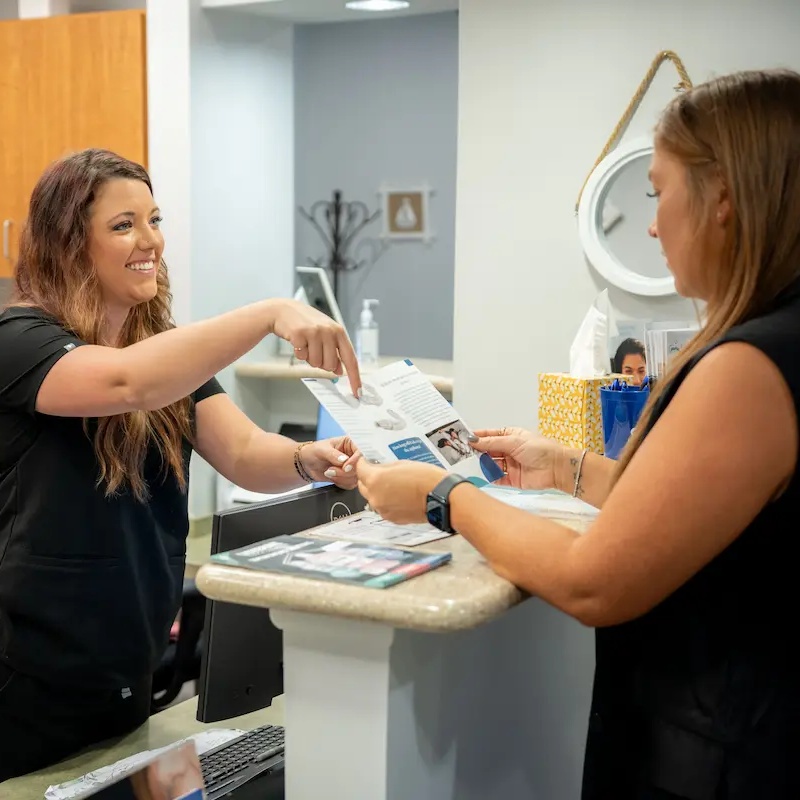Sleep Apnea in Children vs. Adults
Sleep Apnea in Children vs. Adults: Key Differences
Sleep apnea is often thought of as an adult condition, but children can also experience disrupted breathing during sleep. At Palmetto Sleep, we specialize in diagnosing and treating sleep apnea across all ages, helping patients in McDonough, Palmetto, Fayetteville, Zebulon, and nearby Georgia communities achieve healthier sleep.
How Sleep Apnea Differs by Age Group
While adults and children share some overlapping symptoms, the underlying causes, warning signs, diagnostic process, treatment options, and long-term outlooks can vary greatly. Understanding these differences is essential for effective care.
1. Causes and Risk Factors
Children
- Enlarged tonsils and adenoids are the most common cause.
- Family history may play a role; childhood obesity can also contribute.
- Typically seen in children ages 3–6, when tonsils and adenoids are proportionally largest.
Adults
- Strongly linked to obesity, age, and gender (more common in men).
- Lifestyle factors like smoking and alcohol use increase risk.
- Commonly diagnosed as obstructive sleep apnea (OSA) or central sleep apnea (CSA).
2. Symptoms
Children
- Snoring, noisy breathing, or restless sleep.
- Unusual sleep positions or frequent bedwetting.
- Daytime fatigue, hyperactivity, or difficulty focusing.
- Behavioral challenges that may mimic ADHD.
- Poor school performance.
See how our Healthy Start Program supports pediatric sleep and airway health.
Adults
- Loud, persistent snoring.
- Pauses in breathing observed by a partner.
- Morning headaches or dry mouth.
- Excessive daytime sleepiness.
- Mood swings, reduced libido, and difficulty concentrating.
Read more about the psychological impact of sleep apnea and its effect on mental health.
3. Diagnosis
Children
- Clinical evaluation of sleep patterns and behavior.
- Overnight sleep study (polysomnography) to monitor breathing, oxygen, and sleep stages.
- Imaging tests (such as X-rays or endoscopy) may reveal airway blockages.
Adults
- Sleep studies in clinical or at-home settings.
- Evaluation for coexisting conditions like hypertension or metabolic disorders.
4. Treatment Options
Children
- Surgical removal of enlarged tonsils or adenoids.
- Weight management support when obesity is present.
- CPAP therapy if surgery is not effective.
- Behavioral guidance to improve sleep routines.
Adults
- Lifestyle adjustments, including weight loss, reduced alcohol use, and improved sleep habits.
- CPAP therapy, the most common treatment.
- Oral appliance therapy as a more comfortable alternative for some patients.
- Surgical interventions when other treatments are insufficient.
Learn more about our alternatives to CPAP at Palmetto Sleep.
5. Long-Term Outlook
Children
- With early treatment, many children experience full resolution of symptoms.
- Improvements often include better mood, academic performance, and overall development.
- Ongoing monitoring may be recommended to prevent recurrence.
Adults
- Typically a chronic condition requiring lifelong management.
- Increased risk of stroke, cardiovascular disease, and other serious complications.
- Consistent treatment is critical for long-term health and quality of life.
Frequently Asked Questions
At what age is sleep apnea most common in children?
It is most common between ages 3 and 6, when tonsils and adenoids are largest relative to the airway.
Can untreated sleep apnea affect children’s behavior?
Yes. It is linked to hyperactivity, mood swings, and learning difficulties, sometimes mistaken for ADHD.
How is diagnosis different between children and adults?
Both usually require a sleep study, but in children, exams and imaging may also be used to evaluate tonsils and adenoids.
Can children use CPAP therapy?
Yes. If surgery is not successful or appropriate, CPAP may be prescribed for children.
Does sleep apnea go away as children grow?
In some cases. If caused by large tonsils or adenoids, symptoms may improve as tissues shrink with age. However, many children benefit greatly from early treatment.
Schedule Your Consultation
At Palmetto Sleep, Dr. Jordan Brunson, DDS, and our team—including Sleep Coordinator Jessica Meza and Sleep Assistant Heather—are dedicated to providing advanced sleep apnea care for both children and adults. With locations in Fayetteville, McDonough, Palmetto, and Zebulon, we make expert care convenient for families across Georgia.
Call (770) 230-0222 or contact us online to schedule your appointment and take the next step toward healthier, restorative sleep.

Related Services
We'll See You Soon!
Phone:
(770) 230-0222
Email:
info@palmettosleep.com
Fayetteville
210 Trilith Pkwy #130
Fayetteville, GA 30214
McDonough
70 Westridge Pkwy #100
McDonough, GA 30253
Palmetto
501 Park St.
Palmetto, GA 30268
Zebulon
15988 Barnesville St.
Zebulon, GA 30295
Office Hours
Monday 8:30 am – 5:00 pm
Tuesday 8:30 am – 5:00 pm
Wednesday 8:30 am – 5:00 pm
Thursday 8:30 am – 5:00 pm
Friday 8:00 am – 12:00 pm
Saturday Closed
Sunday Closed
Excellence in Care for the Entire Family
Book Your Visit Today
Don’t wait, schedule your appointment with our friendly team today.
